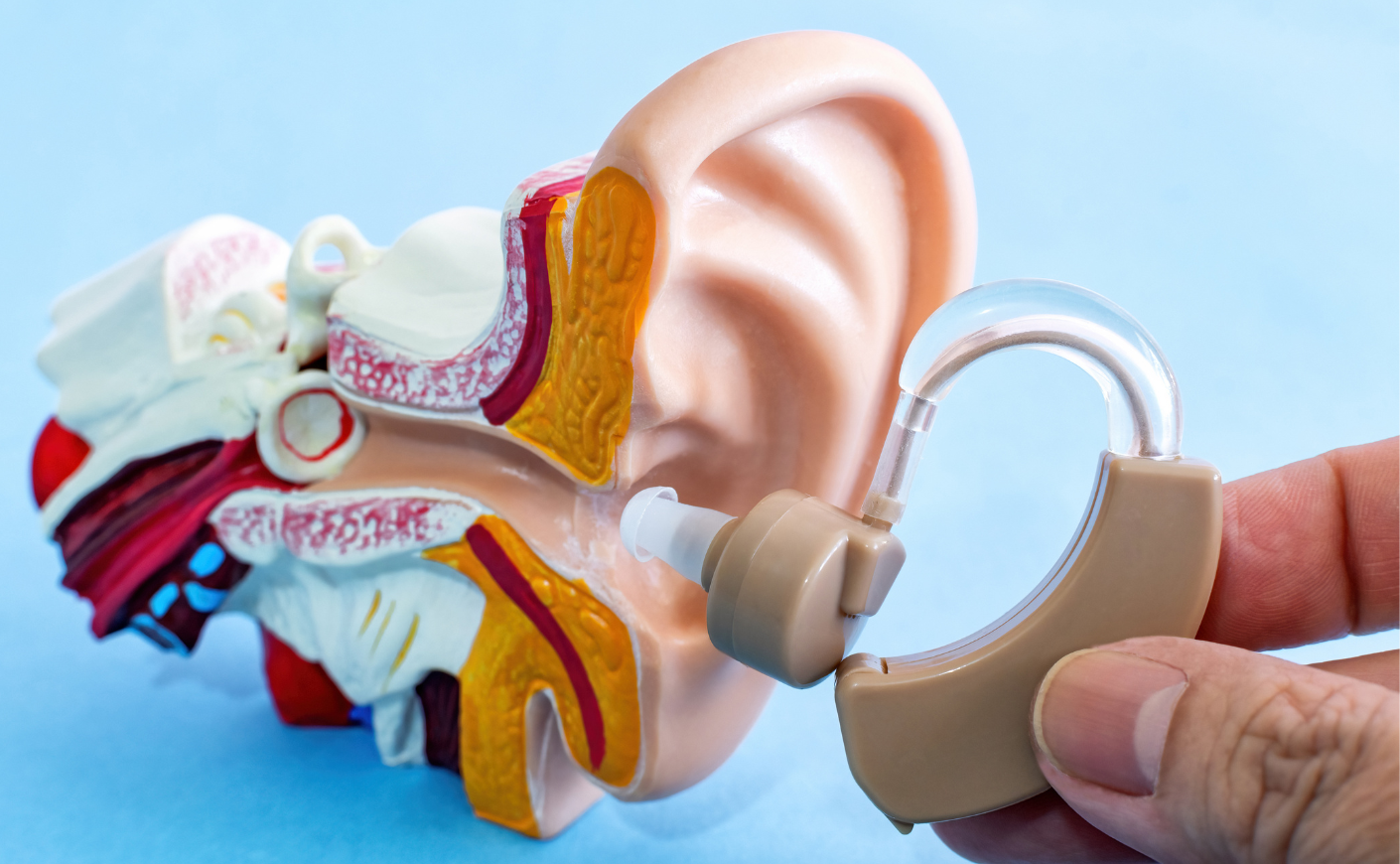Have someone in your life who’s hard of hearing, but not interested in wearing hearing aids? Well, a recent scientific breakthrough might just provide the best argument you can give to your stubborn loved one about why they should finally take the plunge and get a hearing intervention: It could keep them from getting Alzheimer’s.
A new study funded by the National Institutes of Health shows that hearing aids can play a massive impact in slowing cognitive decline in older adults. The study was published in The Lancet this month, and also presented at the Alzheimer’s Association International Conference in Amsterdam. Now, it’s quickly circulating around the globe. Here’s what that groundbreaking study found.
The connection between hearing aids and cognitive decline
The Aging and Cognitive Health Evaluation in Elders (ACHIEVE) study was conducted over a three-year period, and it was the first randomized, controlled clinical trial of its kind. The study aimed to see how effective hearing aid intervention was in preventing cognitive decline — and the results were astonishing.
According to the study, which followed nearly 1,000 senior adults between the ages of 70 and 84 years old, the implementation of hearing aids was able to slow cognitive decline by around 48 percent in adults who had mild to moderate hearing loss and who were at high risk of dementia (meaning, in this case, that they were older and had lower cognitive scores than other adults in the study).
Even the researchers conducting the study were surprised by how dead-on their hypothesis was.
“It came as a surprise in a good way, seeing that hearing intervention had such a large effect on reducing cognitive decline,” the study’s lead author, Frank Lin, told The Washington Post. Lin is a professor at Johns Hopkins University School of Medicine and Bloomberg School of Public Health. “It really draws attention to the fact that hearing is really important. And, in many cases, people don’t realize whether or not they have hearing loss, so clearly a first step is getting your hearing checked if you don’t know where your hearing level is.”
Why hearing aids are useful regardless of your cognitive levels
Given that more than 68 percent of adults over 70 have some form of hearing loss, and that cognitive diseases like Alzheimer’s affect nearly one in 9 people aged 65 and up, the implications of a study like this are profound. With that said, hearing aids alone can’t prevent cognitive decline from taking place in every single adult, and this study didn’t prove that hearing aids can prevent cognitive decline in the long term — only that it helped those at risk of cognitive decline in the short term. Future studies will hopefully provide more clarity on that front.
But even with those caveats, one researcher noted, hearing aids are definitely still worth using for anyone who’s hard of hearing.
“Hearing loss is a disability that interferes with [a person’s] quality of life, and they ought to think about getting a hearing aid if it would benefit them in their daily lives, regardless of whether it has this additional long-term benefit of delaying cognitive decline,” explained David Knopman, M.D., a Mayo Clinic neurologist and co-author of the study.
To The Union Democrat, Knopman offered an example for how hearing aids can still help a person who already suffers significant cognitive damage to their long-term memory. “If I don’t quite hear what you say… I might be able to play it back in my head, so to speak, and figure it out because I have intact short-term memory.”
In addition to helping with short-term memory, hearing aids can help you maintain your interpersonal relationships more easily. There’s nothing worse than being in a crowded restaurant and not being able to hear what your friends and family are talking about — and the more you sit out of the conversation, the more you miss out on, both spiritually and neurologically. (And this is especially important, given the way the effects of loneliness are effecting more and more Americans.)
Plus, if you keep your hearing aids on, then your partner won’t have to scream at you to pass the remote, and that’s no small victory.









